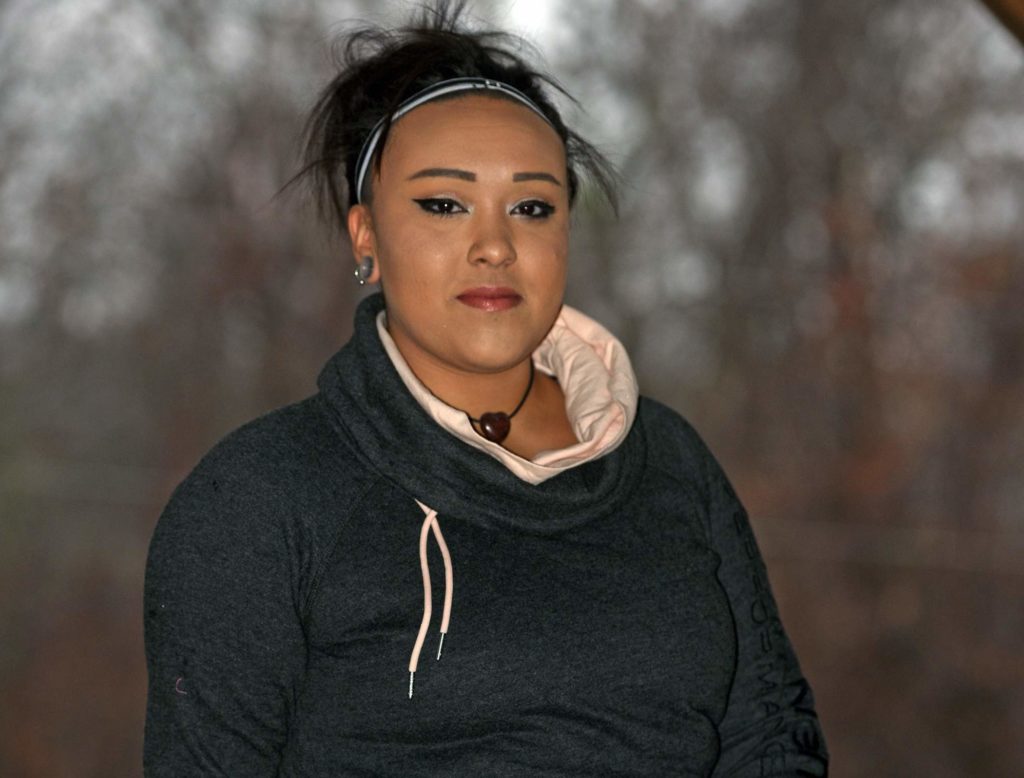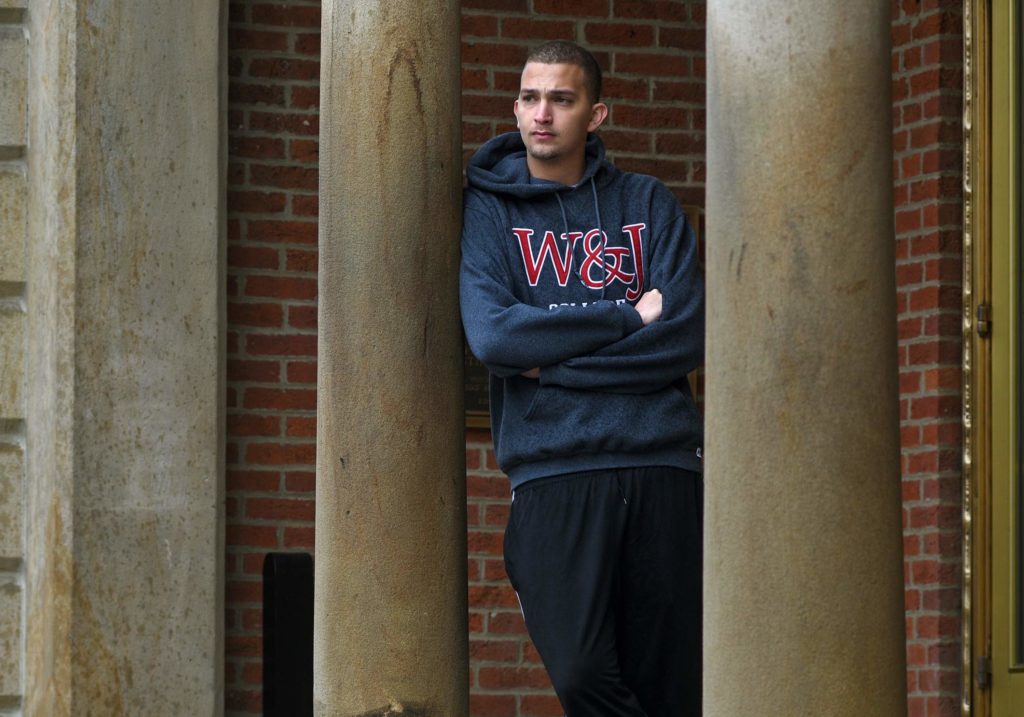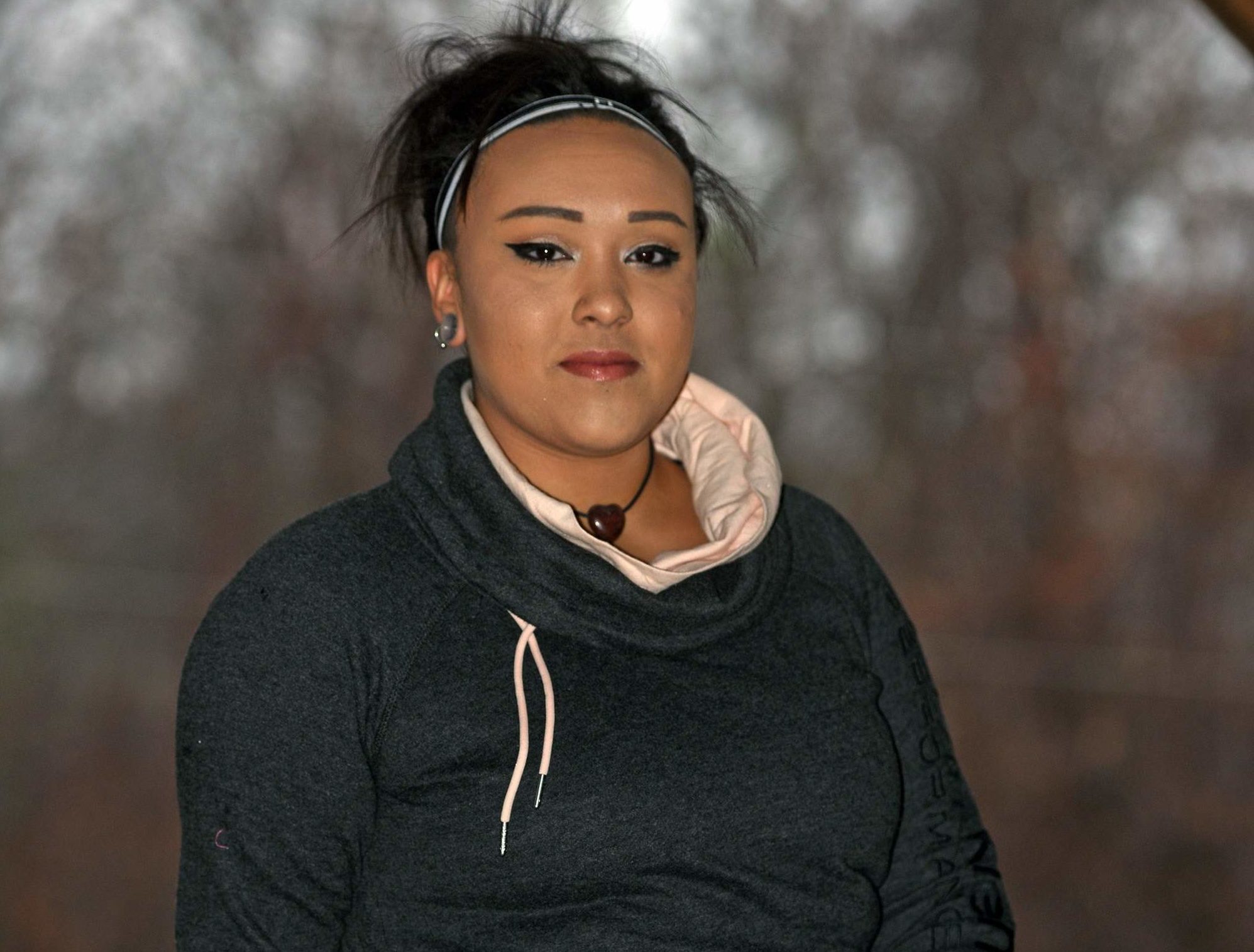By Karen Mansfield
(Washington) Observer-Reporter

WASHINGTON, Pa. (AP) – Koron Harris is used to strangers sneaking glances at her, and she knows why.
“They’re trying to figure out if I’m black or I’m white.”
The daughter of a black father and white mother, Harris has encountered curiosity and fascination about her biracial heritage since she was in elementary school.
“I don’t really think about it at this point, but everybody else does. I’ve had people ask me whether I think I’m black or I’m white, and I honestly don’t see it that way,” said Harris, 19, of Washington. “I just think of me as being Koron.”
Harris shook her head and laughed as she recalled countless conversations she’s had over the years about being biracial. But those discussions reinforce how different her social and personal experiences are from her Caucasian and her African-American friends and relatives.
“I know people are well-intentioned, and they’re not trying to be rude. But they make assumptions about me or put certain expectations on me. If I wear my hair straight or wear Vans tennis shoes, they say, ‘So, you’re white.’ Or I’ll say something, or use a certain phrase, and they’ll say, ‘Oh, so you’re black.”‘
Race is a troubling topic in America; consider the turmoil over San Francisco 49ers quarterback Colin Kaepernick’s refusal to stand during the national anthem, and the increase in incidents of racist harassment across the country before and following the Nov. 8 presidential election.
A Pew Research Center study found that as America becomes increasingly racially diverse and interracial marriage becomes more common, majorities of multiracial adults are proud of their mixed-race background and believe their mixed-race heritage has made them more open to other cultures.
However, a majority say they have been subjected to racial slurs or jokes, and about one in four have become annoyed because people have made assumptions about their racial background.
And the experiences and attitudes of multiracial adults vary significantly, depending on the races that make up their background.
“We live in a society that doesn’t honor the middle. You are either this or you’re that. That’s a tough place to navigate,” said Ketwana Schoos, dean of student life for inclusive campus engagement at Washington & Jefferson College. “I don’t believe you should have to choose. Which side of your heritage are you going to choose to alienate? We need to lessen expectations. People can be both, they should embrace both.”
Dontae Monday, 22, a senior political science/communications major at W&J, said being biracial has been “both a blessing and a curse.”
He was raised by his Caucasian grandparents – his mother’s parents – in what he described as a “rougher neighborhood” in Indianapolis, where he attended predominantly black public schools until he transferred to a private high school where nine of the school’s 500 students were African-American.
“That was a big change. I don’t want my identity to be black or white, but definitely, there are times when it feels like you’re probably not black enough or white enough,” said Monday. “The biggest challenge for me, 110 percent, is when you’re in a group of predominantly black Americans and they say, ‘Oh, you’re not black, bro, and then there are people telling me at college that I’m not like ‘those black people.’ I’m told I’m code-switching if I dress well and speak well. Then I’m being white. If I dress down or talk guttural, then I’m being black.”
Monday said he is grateful that his grandparents were open about his ethnicity from the time he was a small boy.
Conversations often centered around race issues and politics, from Rodney King to the civil rights movement, and his grandparents, who both grew up in the South, talked about racial inequality they witnessed.
“They were awesome and honest, not to make me scared, but to let me know there are people who might not like me because of the color of my skin,” said Monday. “They are big proponents that we’re part of one race, the human race, but they made me know that not everyone thinks that way.”

For Harris, discussing race with her family was not as easy.
Harris’s mother, she said, prefers not to talk about the topic, while her stepfather, who is black, uses humor.
“My mother chooses not to bring it up at all most of the time. She’s not a race-driven person, so she doesn’t like talking about it. My dad likes to make light of the situation,” said Harris. “In my family, my ethnicity has not really been that big of a deal, except to my mother, and I think it’s because she’s sensitive about the subject. Because I’m mixed, she doesn’t want me thinking that it’s something to be ashamed of, or that I have to pick one side or the other.”
When she was in elementary school, Harris’s biracial heritage wasn’t something her classmates talked about.
But when she entered middle school, Harris said she was singled out by a couple of African-American girls who bullied her “because I didn’t act as black as I should have.”
The bullying became so intense that Harris transferred to Trinity Area School District, where she graduated in 2016.
“It ate me up inside, from fourth grade until 11th grade,” said Harris. “I was upset with other people because of how unaccepting of me they were.”
During high school, she joined the Washington County Young Marines and regularly attended Common Ground Teen Center. In both groups, Harris found support and camaraderie.
Dr. Emily Sweitzer, professor of social deviance and director of liberal studies at California University of Pennsylvania, said society is working to replace old ideas about race and racial categorization – the “one-drop rule,” for example, defined a person as black, not white, if they had even a single drop of black blood – with new ideas that respect and value the many ethnicities and races that make up America’s melting pot.
But it hasn’t been easy.
What’s important, she said, is for people of mixed race to have a strong sense of their own identity, whether they identify as multiracial, or choose to think of themselves as one race or another.
“Our self-concept is built on our identity. If we are troubled by where we fit in, that carries over into how we see ourselves and how we think others are viewing us,” Sweitzer said.
Harris has learned not to worry about people’s opinions of her.
“I just want to be a good person in general, and to be a good role model for both sides,” said Harris. “I’ve learned that growing up biracial in America can be difficult, but I would tell people to try not to pay attention to the negative things that other people say, especially about who you are, the way you dress, the way you act, the way you walk and talk. Just surround yourself with people who actually like you for you.”
Monday believes that being multiracial enables him to act as a bridge between races.
He served as president of the Black Student Union and was a member of the Student Government Association, and worked to address race issues on campus, such as the use of the N word.
“I think it’s been a huge blessing in terms of being helpful for me to kind of bridge gaps and cross aisles. I feel like I can converse with both sides and find connectivity,” said Monday, who plans to attend law school after he graduates. “Being biracial is something you kind of have to deal with every day. You have to understand that there will be people who don’t see you as multiracial, but will cast you into being either African-American or white. And you have to think about how you see yourself, and you have to feel comfortable in your skin. It’s been a delightful challenge.”





